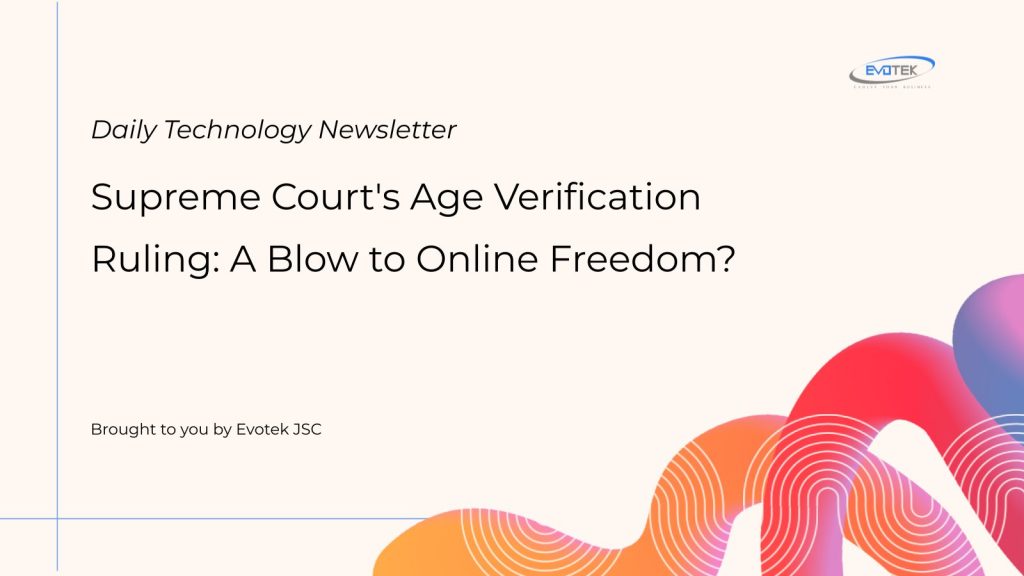San Francisco, CA – A recent Supreme Court decision regarding age verification for online content has sparked widespread debate, with critics arguing that it infringes upon free speech and compromises user privacy.
In Free Speech Coalition v. Paxton, the Court upheld a Texas law requiring websites with a significant portion of sexually explicit material to verify the age of all users. This decision, according to the Electronic Frontier Foundation (EFF), sets a dangerous precedent that could lead to widespread censorship and data security risks.
Key Concerns Raised by the Ruling
- Adults’ Free Speech Rights: Critics argue that the ruling restricts adults’ access to legal content by imposing cumbersome age verification processes.
- Privacy Violations: Requiring users to submit personal information online raises serious concerns about data breaches and potential misuse of sensitive data.
- Anonymity Under Threat: The decision undermines the principle of anonymous internet browsing, which is considered a vital aspect of free speech.
The EFF emphasizes that this ruling deviates from previous Supreme Court decisions, particularly Reno v. American Civil Liberties Union (1997), which struck down a similar federal online age-verification law. The Court’s current justification hinges on the premise that the internet has evolved significantly since then, warranting a different level of scrutiny.
“This Supreme Court broke a fundamental agreement between internet users and the state,” stated the EFF, highlighting the potential for other states to enact similar restrictive laws.
Implications for Internet Users
The ruling is expected to have a ripple effect across the internet landscape, potentially leading to:
- Widespread Implementation of Age Verification: Adult websites may be forced to implement age verification measures or block users in states with similar laws.
- Increased Use of VPNs: Users may turn to VPNs to bypass restrictions and access content from other countries.
- Potential for Content Misclassification: Concerns exist that states may broaden the definition of “harmful to minors” content, leading to the censorship of diverse online communities.
EFF’s Stance and Future Actions
The EFF maintains that the ruling should not be interpreted as a green light for broader internet regulations. They emphasize that the decision’s rationale is specific to sexual content deemed obscene to minors and does not extend to general-audience sites like social media platforms.
The organization pledges to continue fighting for users’ free expression and privacy, advocating for policies that protect anonymity and prevent the disclosure of sensitive information.
“Free Speech Coalition v. Paxton will have an effect on nearly every U.S. adult internet user for the foreseeable future,” the EFF stated, underscoring the importance of safeguarding privacy, security, and free speech as fundamental tenets of the internet.
Stay Informed: Join the EFF’s mailing list for updates on this critical issue.

 日本語
日本語 한국어
한국어 Tiếng Việt
Tiếng Việt 简体中文
简体中文